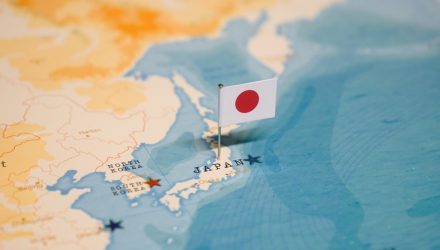With the MSCI Japan Index up 9.12% year-to-date, Japanese stocks are slightly outpacing the S&P 500, but with the right strategies, investors have earned even better returns from the Land of the Rising Sun.
For example, the WisdomTree Japan Hedged Equity ETF (DXJ) is higher by 24% since the start of 2024 and more upside could be in store for the popular exchange traded fund as more Japanese firms emphasize the creation of corporate value to comply with mandates laid out by the Tokyo Stock Exchange last year.
Shareholder rewards, including share buybacks and dividends, are efficient avenues for creating corporate value. That’s an approach plenty of Japanese companies, including DXJ member firms, are adhering to. In fact, the WisdomTree ETF is highly relevant in the shareholder rewards conversation. The WisdomTree Japan Hedged Equity Index – DXJ’s underlying index – focuses on dividend paying companies with export exposure.
Japanese Companies Can Increase Shareholder Rewards
In comparison to other large industrialized economies, Japan is a relatively new player on the shareholder rewards stage. What’s important to investors considering DXJ is that companies featured in the ETF have the ability to sustain and grow dividends over time. It appears that is the case.
“The good news is that Japanese companies are well-placed to take some or all of these steps. The percentage of companies that are ‘net cash’ (i.e. whose cash on the balance sheet is greater than their liabilities) is 44%. That gives those companies scope to invest in their business, or increase returns to shareholders, or both,” according to Schroders.
That 44% is far higher than percentages with U.S. or European companies. This means balance sheets of DXJ member firms are stronger than what investors find in many comparable domestic or European ETFs. Additionally, Japanese companies are becoming dedicated buyers of their own shares. Share buyback announcements there set records in each of the past five years.
Another widely cited catalyst supporting the rally by Japanese equities is the return of inflation, albeit modest, to the economy. That’s brought with it higher wages. That could stoke more consumer discretionary spending as well as more participation in equity markets by Japanese retail investors.
“Deflation leads companies and consumers to delay investment and put off purchases. There’s little point buying something today if it will be cheaper tomorrow. By contrast, moderate inflation gives companies the confidence to invest for the future and also spurs consumers to spend,” concluded Schroders.
For more news, information, and analysis, visit the Modern Alpha Channel.








